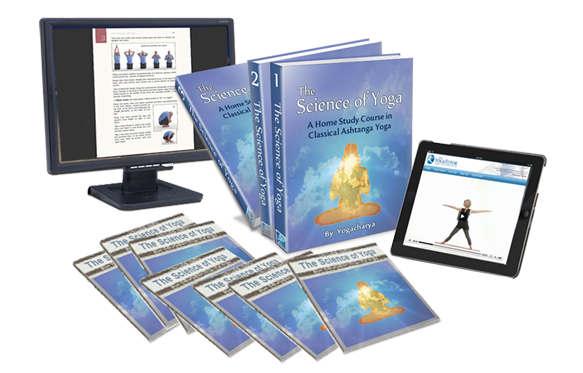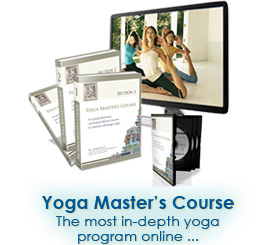[ Excerpt from The Science of Yoga, page 440 ]
Sva refers to the individual self and adhyaya means “study” or simply “education.” The literal translation of swadhyaya then, is “self-study,” which has been interpreted in various ways.
Some schools of spirituality take svadhyaya to mean study of the sacred texts (scriptures). Yet the yogi understands this term in a broader sense. In yoga, self-study goes beyond intellectual inquiry and implies an ‘inner study of the Self’. Hence, svadhyaya also means “the study of the self through contemplation.” Through svadhyaya the yogi comes to understand the inner workings of his/her mind, uncovers his/her profound nature and achieves communion with the Divine.
Yet it would be hasty and unwise to merely discredit the academic schoolwork. Many who set out upon a path of wisdom and understanding have a very vague and confused intellectual background of spirituality and lack a clear grasp and broad perspective of the subject, which is essential for successful progress.
So before embarking on a journey deep within the Self, the student of yoga, as a natural course, must first make him/herself familiar with all of the concepts and teachings of this vast science of evolution, in order to have a proper and useful base of understanding from which to proceed on this perilous inner journey. All of the essential treatise that analyse the various branches of yoga must become known to the serious student. As I.K Taimni points out in his book, The Science of Yoga:
"In this way, he acquires the necessary knowledge of the theoretical principles and practices which are involved in the Yogic ideal. He also gets an idea of the relative values of the different methods and a correct perspective with regard to all matters connected with Yogic practices."
A continuous reading of, and sincere reflection upon the traditional texts prepares the way for experiencing, through personal practice, the higher levels of knowledge and awareness.
Contrary to the general opinion, these spiritual texts are not philosophical points of view only, but also practical instructions for experiencing new, higher states of mind. The depths of the truths set forth in these books have the potential to profoundly change the consciousness of the one who bends over them with due interest.
In the beginning, some of these texts may seem to make no sense though, especially to a Westerner; but they convey extremely profound wisdom and contain condensed information that is supposed to be meditated upon.
Academic study, however, is limited. Alone it is only theoretical and does not have the power to take one very far on the road to Self-realization. Therefore, one must be careful not to get "stuck" in intellectualization and academics.
A steadfast and profound reflection upon these texts prepares the spirit for the understanding of the ultimate truths. Thus, the detailed study of the yogic literature, though necessary, is only the first step of svadhyaya. One must really 'experience' in order to 'know'. The experimentation on a personal level of the wisdom of these teachings is essential for transformation. As the wise Swami Sivananda said, "A gram of practice is worth a ton of theory."...
[Continued...]
---------------------
NOTE: This yoga article is an excerpt from The Science of Yoga, an online yoga training program with streaming yoga videos and 600 pages of step-by-step yoga instruction.

"The Science of Yoga is a course worthy of
leather binding and an honored place in the
finest libraries in the world
... It is indeed a masterful work."
Dr. John Michael Christian
AwakeningWithYoga.com
Learn More About
The Science of Yoga Course
|






